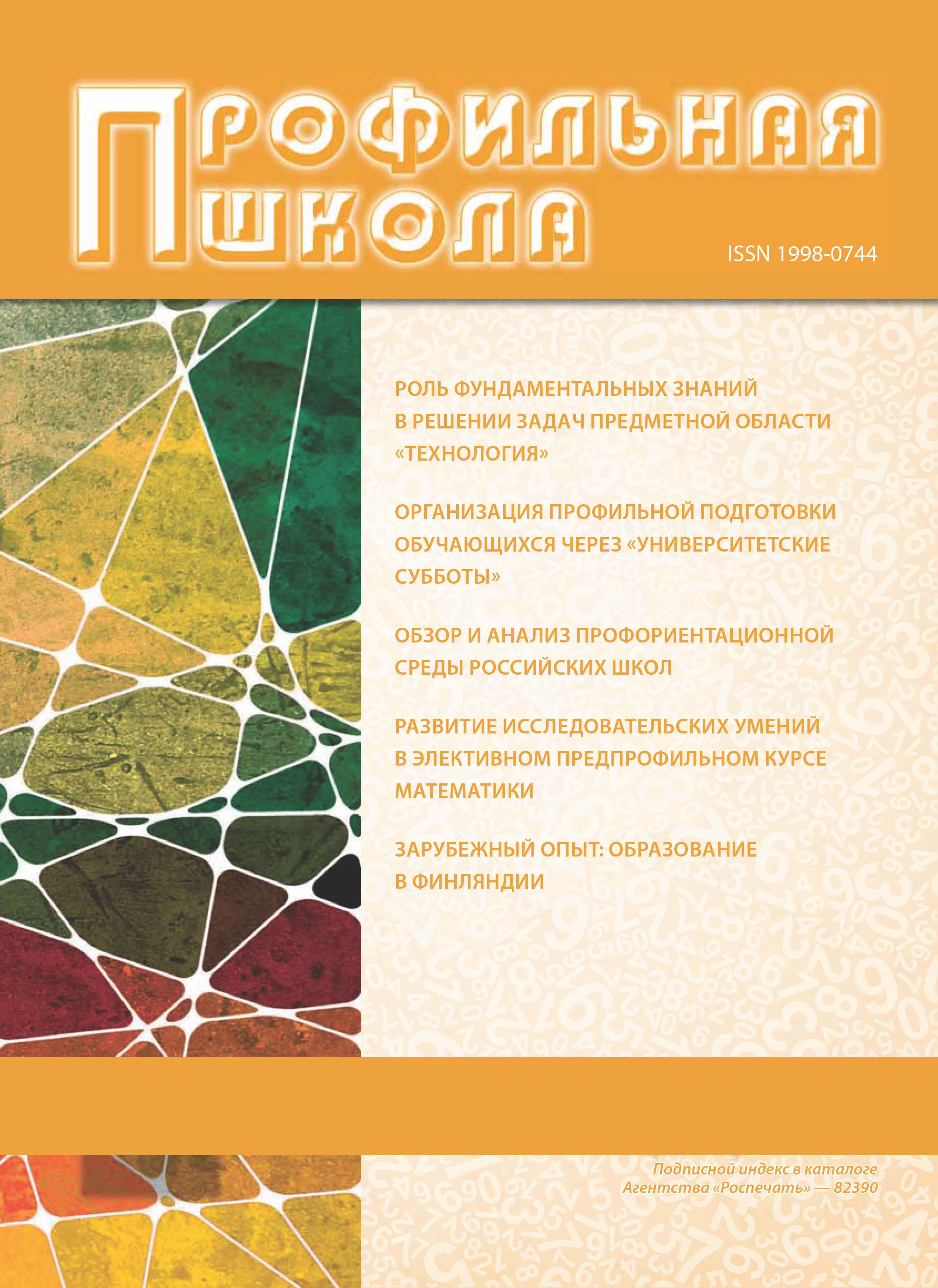Moskva, Russian Federation
The article considers approaches to the study of interdisciplinary science concepts based on their modeling. The manifestation of integrative trends in education is shown, the concept of «interdisciplinary» is substantiated. methodological basis for identification of interdisciplinary science concepts of energy and matter is defined. General scientific concept of «model» is presented as a method of cognition, «modeling» as a general learning — symbolic of universal educational actions. the concept of «cognitive system» model is highlighted In relation to science education. It is proven that biological patterns having the physic-chemical basis, have heuristic potential for modeling interdisciplinary science concepts within a system of cognitive models. some models of physical-chemical-biological processes of transformation of matter and energy at different levels of the organization are presented. Approaches to modeling interdisciplinary science concepts are considered from the viewpoint of formation of interdisciplinary learning outcomes.
integration, interdisciplinary scientific concept, system cognitive model, modeling, interdisciplinary learning results.
Стратегические направления модернизации общего образования в значительной степени обусловлены глобальными проблемами цивилизации, парадигмальными сдвигами в науке, социальной действительностью. В современном проблемном мире обнаруживается «кричащая» диспропорция между ростом отдельных знаний, аналитической культурой мышления и способностью человека, а тем более — школьника, собрать их в единую картину мира. Это послужило причиной развития интергативных процессов в науке и образовании. В общем образовании интергативные процессы проявились множественно. Во ФГОС ООО были выделены предметные области, в рамках которых предъявляются общие подходы к содержанию и результатам образования. Так, изучение предметной области «Естественные науки» (включает предметы физика, химия, биология, естествознание, экология), призвано способствовать формированию целостных представлений о современной научной картине мира, пониманию взаимосвязи и взаимозависимости естественных наук, влияния естественных наук на окружающую среду, сферы деятельности человека.
1. Federal state educational standard. Available at: http://www.standart.edu.ru/ (in Russian).
2. Pozdneeva S. P. Interdisciplinarity as a total phenomenon of the knowledge of the XXI century: the establishment of interdisciplinary dictionary of science. Proceedings of the Saratov University. 2009, Vol. 9, pp. 114-123. (in Russian)
3. Kaziev C. M. Introduction to system analysis and modeling. Moscow, 2001. (in Russian)
4. Davydov V.V. Challenges of developmental education: the experience of theoretical and experimental psychological research. Moscow, Education Publ., 1986. (in Russian)






